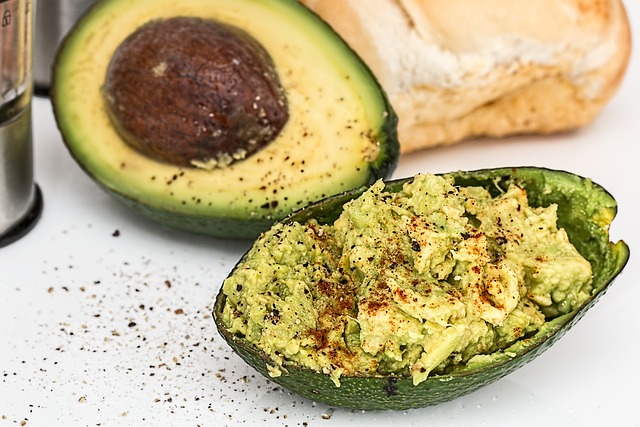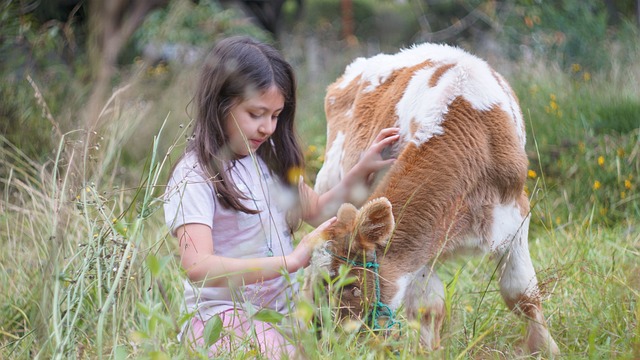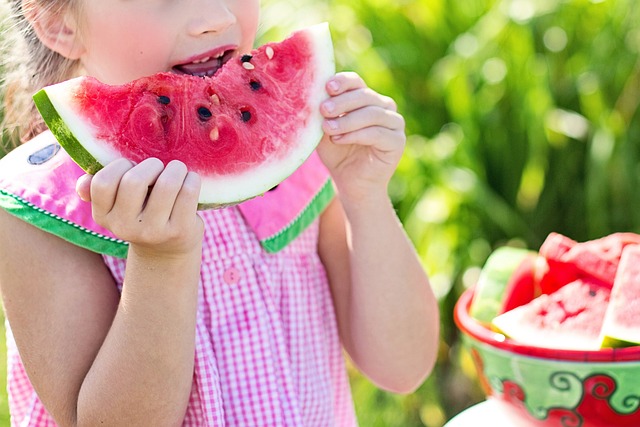The Role of Supplements in a Child’s Vegan Diet
A vegan diet for children has become increasingly popular in recent years. This type of diet excludes all animal products and focuses on plant-based foods. While a well-planned vegan diet can offer numerous health benefits for children, it is crucial to ensure that they receive optimal nutrition. In this blog post, we will explore the role of supplements in a child’s vegan diet and emphasize the importance of meeting their nutritional needs effectively.
Table of Contents
Benefits and Challenges of a Vegan Diet for Children
A well-planned vegan diet can offer numerous health benefits for children. One major advantage is the increased intake of fruits, vegetables, whole grains, and legumes, which provide essential vitamins, minerals, and fiber. These nutrient-rich foods help support a child’s growth and development, boost their immune system, and reduce the risk of chronic diseases like obesity, heart disease, and certain types of cancer.
Moreover, a vegan diet can also contribute to a healthier weight in children, as it is naturally lower in saturated fats and cholesterol. This can reduce the risk of developing conditions like high blood pressure and diabetes later in life. Furthermore, studies have shown that vegan children tend to have lower levels of cholesterol and blood pressure compared to their non-vegan counterparts, which can contribute to improved heart health.
However, there are also challenges that need to be addressed when following a vegan diet for children. One of the main concerns is meeting nutrient requirements, particularly for crucial nutrients like protein, calcium, iron, zinc, and vitamin B12. While these nutrients can be obtained from vegan sources, it is important to ensure that they are adequately included in a child’s diet to prevent deficiencies.
Another challenge is ensuring balanced meals that provide all the necessary nutrients. It is essential to plan meals carefully to ensure that the child’s diet includes a variety of plant-based proteins, such as beans, tofu, tempeh, and quinoa, to meet their protein needs. Additionally, calcium-rich foods like fortified plant-based milk, tofu, and leafy green vegetables should be included to support bone health.
To address these challenges, it is crucial for parents and caregivers to educate themselves about proper nutrition for vegan children and consult with healthcare professionals or registered dietitians. They can provide guidance on meal planning, nutrient supplementation, and appropriate portion sizes for different age groups. Regular monitoring of nutrient levels through blood tests can help identify deficiencies and ensure that any gaps in the child’s diet are appropriately addressed, either through dietary modifications or the use of supplements.
Understanding Nutrient Needs for Children on a Vegan Diet
When it comes to a child’s vegan diet, it is crucial to understand the essential nutrients they need for proper growth and development. This is because a well-planned vegan diet can provide all the necessary nutrients, ensuring their overall health and well-being.
Protein is an important nutrient for children, as it is vital for the growth and repair of tissues. Plant-based sources of protein, such as beans, lentils, tofu, and quinoa, can provide an adequate amount of protein for children on a vegan diet. It is important to ensure that a variety of these protein-rich foods are included in their meals to meet their daily needs.
Additionally, calcium is crucial for strong and healthy bones. While dairy products are often the go-to source of calcium, vegan children can obtain this nutrient from fortified plant-based milk, tofu, kale, broccoli, and fortified cereal. It is worth noting that the bioavailability of calcium from plant-based sources may vary, so it is important to ensure an adequate intake and possibly consider supplementation if necessary.
Iron is another essential nutrient needed for children’s development, as it is necessary for the production of red blood cells and overall cognitive function. Plant-based sources of iron include spinach, lentils, tofu, and fortified cereals. However, it is important to note that the bioavailability of iron from plant sources is lower compared to animal sources. Thus, combining iron-rich foods with vitamin C-rich foods can enhance iron absorption.
Omega-3 fatty acids, specifically DHA and EPA, are crucial for a child’s brain development and overall cognitive function. While these fatty acids are commonly found in fish, vegan sources such as flaxseeds, chia seeds, and walnuts can provide the necessary omega-3s. It is important to note that the conversion of plant-based omega-3s to DHA and EPA may be limited in some individuals, so supplementation with algae-based omega-3 supplements might be beneficial.
In conclusion, understanding the nutrient needs for children on a vegan diet is essential to ensure their proper growth and development. By focusing on plant-based sources of protein, calcium, iron, and omega-3 fatty acids, parents can provide a balanced and nutritious diet for their vegan children. It is always important to monitor nutrient levels, especially in children, and have open communication with healthcare professionals to ensure the adequacy of their diet and potentially consider supplementation when needed.
Recognizing Nutritional Gaps in a Vegan Diet
A vegan diet for children offers numerous health benefits, but it is essential to be aware of the potential nutritional gaps that may arise. The absence of animal products in a child’s diet means they may be at risk of deficiencies in certain nutrients. It is crucial for parents and caregivers to monitor their child’s nutrient intake and assess for potential deficiencies.
One common nutritional gap in a child’s vegan diet is vitamin B12 deficiency. This vitamin is mainly found in animal-derived foods, and its absence in a vegan diet can lead to complications such as anemia and impaired neurological development. Thus, supplementing with vitamin B12 is highly recommended for children on a vegan diet.
Another important nutrient that may be lacking in a vegan diet is vitamin D. While the primary source of vitamin D is sunlight, it can also be obtained from fortified dairy products or fish. As these sources are not part of a vegan diet, supplementation or careful planning to include fortified plant-based alternatives is necessary to ensure adequate intake.
Omega-3 fatty acids, specifically EPA and DHA, are crucial for brain development and overall health in children. While they are primarily found in fatty fish, there are plant-based sources such as flaxseeds, chia seeds, and walnuts that can provide these essential fatty acids. However, supplementing with algae-based omega-3 supplements may still be recommended to ensure optimal intake.
Additionally, adequate protein, iron, calcium, and zinc intake should be monitored, as these nutrients are commonly found in animal products. However, they can also be obtained from plant-based sources such as legumes, whole grains, nuts, and seeds. Ensuring a variety of these foods and potentially supplementing if necessary can help meet the nutritional needs of vegan children.
In conclusion, while a well-planned vegan diet can provide ample nutrition for children, it is vital to recognize and address potential nutritional gaps. Regular monitoring of nutrient intake and assessing for deficiencies is key to ensuring a child’s optimal health and development. By being proactive in identifying and addressing these gaps, parents and caregivers can support their child’s vegan lifestyle while ensuring their nutritional needs are met.
Role of Supplements in Meeting Nutritional Needs
Supplements play a crucial role in meeting the nutritional needs of children following a vegan diet. While a well-planned vegan diet can provide many essential nutrients, there are certain nutritional gaps that may need to be addressed. These gaps can arise due to the exclusion of animal products, which are traditionally rich sources of certain nutrients.
Specific supplements, such as vitamin B12, vitamin D, and omega-3 fatty acids, are particularly important for children on a vegan diet. Vitamin B12, primarily found in animal products, is essential for proper neurological development and the production of red blood cells. Vegan children can obtain vitamin B12 from fortified foods or through supplementation. Vitamin D, crucial for bone health and immune function, can be synthesized by the body through exposure to sunlight. However, since vegan diets may limit exposure to sunlight or include fortified food sources, it may be necessary to supplement vitamin D. Omega-3 fatty acids, important for brain development and heart health, are commonly found in fish. Plant-based sources, such as flaxseeds and walnuts, provide a different form of omega-3s that may not be as readily utilized by the body. As a result, supplementing with an algae-based omega-3 may be beneficial to ensure an adequate intake.
It is important to note that supplements should not replace a well-balanced diet, but rather complement it. They serve as a means of bridging the nutritional gaps that may arise in a child’s vegan diet, ensuring that they receive all the necessary nutrients for optimal growth and development. However, it is crucial to consult with a healthcare professional or registered dietitian to determine the appropriate supplements and dosages for the child.
By including these supplements, parents can provide their vegan children with the nutrients they may not be obtaining directly from their diet. This approach helps to ensure that children on a vegan diet can thrive and maintain optimal health. Regular monitoring of the child’s nutritional status through check-ups and blood tests is also important in assessing any potential deficiencies that may require adjustments to the supplement regimen.
In conclusion, supplements have a crucial role in meeting the nutritional needs of children on a vegan diet. By providing specific nutrients such as vitamin B12, vitamin D, and omega-3 fatty acids, supplements help bridge the nutritional gaps that may arise from the exclusion of animal products. However, it is important to approach supplementation in a safe and informed manner, under the guidance of healthcare professionals. By combining proper planning, regular monitoring, and effective communication, parents can ensure their vegan children have a well-rounded and nutritionally balanced lifestyle.
Ensuring Safe and Effective Supplement Use
When it comes to incorporating supplements into a child’s vegan diet, it is crucial to prioritize safety and effectiveness. Selecting high-quality supplements is of utmost importance to ensure that children receive necessary nutrients without any potential risks.
To begin with, it is essential to choose supplements from reputable brands that comply with stringent quality control standards. Look for certifications such as Good Manufacturing Practices (GMP) to ensure that the products are manufactured in a safe and controlled environment. Reading product labels carefully is also crucial, as it allows you to identify any potential allergens or unnecessary additives that may not align with a child’s dietary needs.
Moreover, understanding proper dosages is vital for ensuring supplement effectiveness and safety. Consulting a healthcare professional is highly recommended to determine the appropriate dosage for a child based on their age, weight, and specific needs. Over-supplementation can be as harmful as nutrient deficiencies, so it is important to adhere to the recommended dosage to prevent any adverse effects.
While supplements can play a crucial role in meeting nutrient needs, it is important to be aware of potential risks associated with over-supplementation. For instance, excessive intake of fat-soluble vitamins, such as vitamin D, can lead to toxicity. Therefore, it is crucial to follow recommended guidelines and never exceed the recommended dosage.
In conclusion, ensuring the safe and effective use of supplements in a child’s vegan diet requires careful consideration. Selecting high-quality supplements from reputable brands, understanding proper dosages, and being aware of potential risks associated with over-supplementation are all vital steps in ensuring optimal nutrition for children. By following these guidelines, parents can confidently support their child’s vegan lifestyle while promoting their overall health and well-being.
The Importance of Regular Monitoring and Communication
Regular monitoring and communication are crucial when it comes to ensuring the optimal nutritional status of a child on a vegan diet. Regular check-ups and blood tests play a key role in evaluating a child’s nutrient levels and overall health.
Regular check-ups provide an opportunity for healthcare professionals to assess a child’s growth and development, as well as identify any potential nutritional deficiencies. By monitoring a child’s growth trajectory, professionals can ensure that the child is meeting their nutritional requirements and thriving on a vegan diet.
Blood tests are another important tool for assessing a child’s nutritional status. They can measure key parameters such as iron levels, vitamin B12 levels, and vitamin D levels. These tests help identify any deficiencies or imbalances that may require intervention.
In addition to regular monitoring, open communication with healthcare professionals is essential. Parents should regularly discuss their child’s vegan diet and supplement usage with their doctor or pediatrician. This open dialogue allows healthcare professionals to provide guidance and support, ensuring that the child’s nutritional needs are being adequately met.
Healthcare professionals can also provide personalized recommendations based on an individual child’s nutritional requirements. This may include tailoring supplement dosages or suggesting specific supplements based on the child’s unique needs.
By emphasizing the significance of regular monitoring and communication, parents can ensure that their child’s vegan diet is well-supported and nutritionally balanced. Taking the necessary steps to monitor a child’s nutritional status and maintaining open communication with healthcare professionals will help address any potential concerns and ensure that the child is thriving on their vegan diet.
Conclusion
In conclusion, the role of supplements in a child’s vegan diet cannot be overstated. A well-planned vegan diet can provide numerous health benefits for children, but it is crucial to ensure they receive optimal nutrition. This is where supplements play a vital role.
The importance of proper planning, monitoring, and communication cannot be emphasized enough. By incorporating supplements in a child’s vegan diet, parents can help bridge the nutritional gaps that may occur. It is essential to recap the significance of supplements and their ability to provide key nutrients such as vitamin B12, vitamin D, and omega-3 fatty acids, which may be lacking in a vegan diet.
However, it is important to note that supplements are not a substitute for a well-rounded diet. They should complement a child’s vegan lifestyle rather than be relied upon solely. Proper planning is crucial to ensure that balanced and nutrient-rich meals are provided. This includes understanding the nutrient needs of children on a vegan diet and identifying plant-based sources that are rich in these essential nutrients.
Additionally, regular monitoring and communication with healthcare professionals are vital. Regular check-ups and blood tests can help assess a child’s nutritional status and detect any potential deficiencies. Open communication with healthcare professionals can provide guidance and ensure that any supplementation is appropriate and safe for the child.
In conclusion, a well-rounded vegan lifestyle for children requires proper planning, monitoring, and communication. Supplements can play a crucial role in providing necessary nutrients that may be lacking in a child’s vegan diet. By ensuring their child receives optimal nutrition, parents can help promote their overall health and well-being. Remember, a child’s vegan diet can be balanced and nutritious with the right approach and support.







